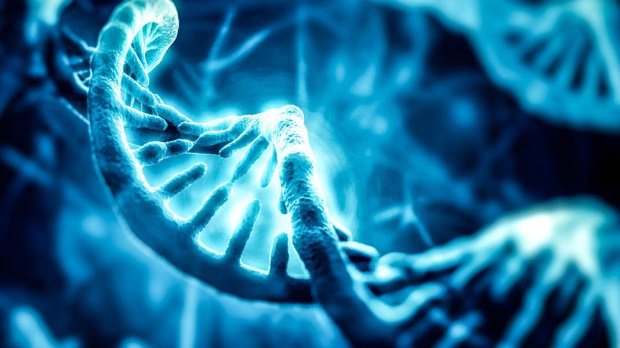Jerome Lejeune was the first to recognize that Down syndrome was caused by an extra copy of chromosome 21.
Louis Washkansky was the first man to receive a heart transplant and survive.
Ben Carson was the first to lead a team of doctors separating twins conjoined at the cranium.
The name of Brian Madeux might now be added to that list of medical firsts.
Madeux, on Monday, became the first person to be injected with billions of copies of a corrective gene and a genetic tool to cut his DNA in a precise spot. The procedure, conducted at UCSF Benioff Children’s Hospital in Oakland, is the first time scientists have tried editing a gene inside the body in an attempt to permanently change a person’s DNA.
It is hoped that the treatment will slow or halt the progression of Madeux’s Hunter syndrome, a metabolic disease that has required him to undergo 26 operations in his 44 years.
The Associated Press explained how the procedure, known as zinc finger nucleases, works. The therapy is like molecular scissors that seek and cut a specific piece of DNA:
The therapy has three parts: the new gene and two zinc finger proteins. DNA instructions for each part are placed in a virus that’s been altered to not cause infection but to ferry them into cells. Billions of copies of these are given through a vein. They travel to the liver, where cells use the instructions to make the zinc fingers and prepare the corrective gene. The fingers cut the DNA, allowing the new gene to slip in. The new gene then directs the cell to make the enzyme the patient lacked. Only 1 percent of liver cells would have to be corrected to successfully treat the disease, said Madeux’s physician and study leader, Dr. Paul Harmatz at the Oakland hospital.
“We cut your DNA, open it up, insert a gene, stitch it back up,” Dr. Sandy Macrae, president of Sangamo Therapeutics, the California company testing this for two metabolic diseases and hemophilia, told AP. “Invisible mending. It becomes part of your DNA and is there for the rest of your life.”
Tests in three months will tell whether or not it works. Madeux, who said he is in near constant pain, said he’s willing to take the risk: “Hopefully it will help me and other people.”
If the editing causes any mistakes, however, there’s no possibility of reversing the procedure.
People with Hunter syndrome lack a gene that makes an enzyme that breaks down certain carbohydrates. These build up in cells and cause a slew of problems, including frequent colds and ear infections, distorted facial features, hearing loss, heart problems, breathing trouble, skin and eye problems, bone and joint flaws, bowel issues and brain and thinking problems. Madeux has undergone procedures for hernias, bunions, bones pinching his spinal column, and ear, eye and gall bladder problems. Last year he almost died from a bronchitis and pneumonia attack. The disease had warped his airway, and “I was drowning in my secretions, I couldn’t cough it out.”
Other types of gene editing have raised ethical concerns, particularly in regards to conducting experiments on human embryos that will kill them.
In this case, however, there are no “principled ethical concerns,” said John Brehany, Director of Institutional Relations at the National Catholic Bioethics Center. “The intent is therapeutic, the relevant action appears to take place exclusively within an individual’s body (i.e., non-reproductive cells) for a proportionate reason,” he told Aleteia.
“Prudentially, there are certainly risks to life and health. Hopefully the intervention is sufficiently well-designed to be tried in humans, and not being over-sold, hyped, offered so as to get a person or clinic on the front pages,” Brehany said.

